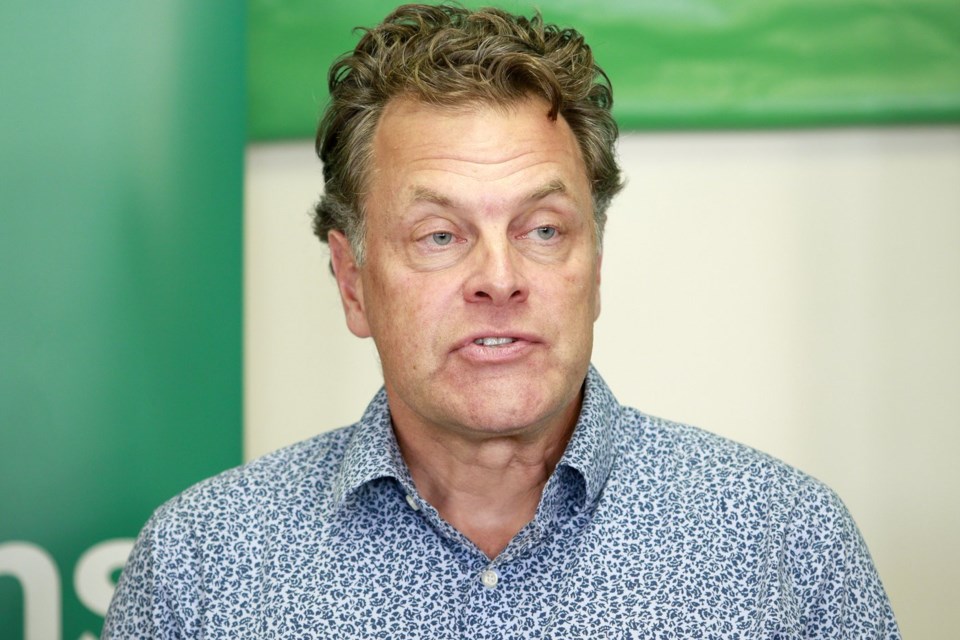VICTORIA — New Democrats in British Columbia under Premier David Eby and the provincial Greens say an agreement between the two parties has yielded challenges, but the two sides are committed to keep working with each other.
The first quarterly update on the two parties' Cooperation and Responsible Government Government Accord did not specify the challenges, only that both sides are planning to resolve them in "good faith."
The agreement seeks to stabilize Eby's slim one-seat majority with the two B.C. Greens supporting the government, in exchange for specific actions in 12 policy areas including health care, housing, environment, electoral reform and B.C.'s response to American tariffs.
The accord differs from the confidence-and-supply agreement that the two parties had signed in 2017 because it allows the B.C. Greens to disagree with government in areas not explicitly covered by the accord.
A number of disagreements have risen between the New Democrats and the Greens since last fall's election, including the government's decision to axe the consumer carbon tax and Bill 15 — which proposes to speed up public and private infrastructure projects as a response to American tariffs.
Neither disagreement appears in a joint statement signed by Eby and interim B.C. Green leader Jeremy Valeriote.
The statement instead says Eby and Valeriote are "pleased to report" that a "number of policies" and reviews have been implemented and launched.
They include enhanced rental supports for low-income seniors, $50 million for heat pumps for low- and middle-income households in each of the next two years, and the recently started review of CleanBC programs one year ahead of schedule.
Both parties also say that they have so far "largely" lived up to their commitment to consult each other on legislation, adding that "when challenges arise, both parties are working to address them in good faith."
The progress report specifically points to the talks that happened around Bill 7 -- the Economic Stabilization Tariff Response Act, whose initial wording would have given cabinet unprecedented powers to sidestep the legislature in response to tariffs from a foreign jurisdiction.
The report says this regular communication between the two parties "was largely tested" during the debate around Bill 7, with the resulting agreement between government and the B.C. Greens leading to the removal of "certain clauses" and the government accepting "certain amendments."
The B.C. Greens said in a separate statement that they are "confident" in the progress described in the first quarterly report, pointing to "wins" around key Green priorities such as "democratic reform, expanded rental assistance for low-income families and seniors and accelerated investments" in climate-friendly technologies.
Valeriote says much of the work outlined in the two parties' agreement is still in progress, adding that the Greens are aware that "there is far more to do on health care, on housing, on climate, and on building a democratic system that earns people's trust."
The four-year-long agreement includes an annual renewal clause and includes a provision for quarterly updates.
This report by The Canadian Press was first published May 23, 2025.
Wolfgang Depner, The Canadian Press




